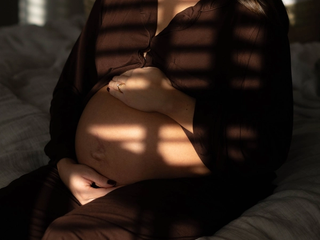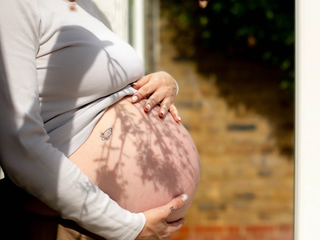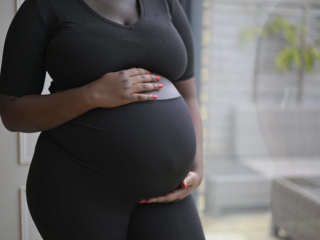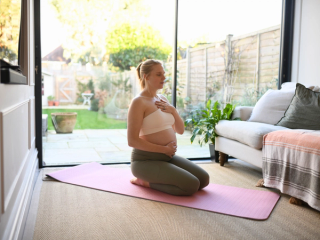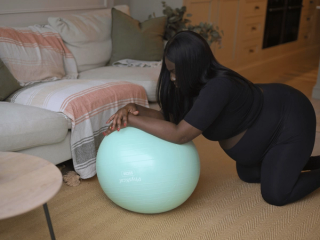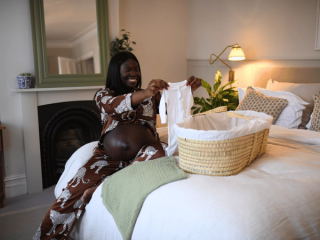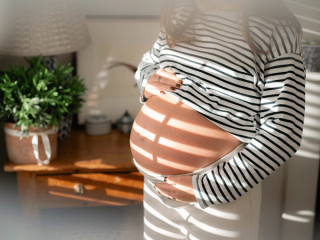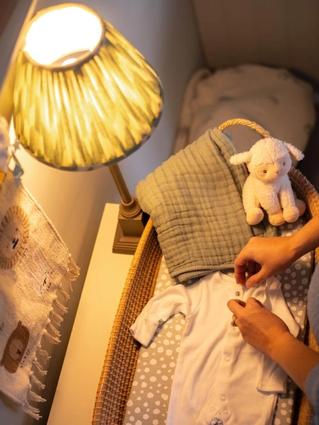
- Home
- Advice Hub
- Pregnancy
- Labour & Birth
- Where To Give Birth?
Birth options: where to give birth?
Discover options for where to give birth in the UK, from home births to maternity units and hospitals. Learn what to expect, available facilities, and how to decide.
Reviewed by Christine Lane, Midwife and Consultant, on the 24.09.2025
After the excitement of finding out you are pregnant, one of the early choices you’ll want to consider is where to give birth to your baby. There are a few birthing places you can opt for including home birth, birthing centres, and hospital. Keep reading to get an understanding of the different birthing places, along with pros and cons for each.
Home births
In the UK, the national average of home birth rates are 2 to 3%. However, this varies tremendously regionally; some places have a lower rate and some much higher. Many NHS hospitals have a dedicated home birth team with midwives specialising in home birth and supporting mums to birth safely at home. Similarly, there are private, independent midwives who offer homebirth services around the country.
What are the benefits of a homebirth?
There are many advantages to having a home birth: being in familiar surroundings can help you relax, your labour won't be interrupted by a trip to hospital, and your partner can be with you at all times. Research shows that home birth is safer than birth in hospital for women who have a low risk, uncomplicated pregnancy. Women who have a home birth often report very positive experiences. You are able to labour in your own comfortable surroundings, free of beeping machines and other noises that you might experience in a hospital.
At home there are no limits of the number of support or birthing partners you have with you, although its probably best not to have a roomful so that there’s plenty of space. You may decide to hire or purchase a birthing pool and have the freedom to use additional aids like birthing balls, stools and other birthing equipment that are not available in all hospitals. There are many places online that hire and sell birthing aids to support your birth.
Another benefit of having a home birth is that you can get straight into your own bed for the night, without the worry of bright lights and other interruptions from the ward.
Planning a homebirth
If you are considering a homebirth, you might want to start by speaking with your maternity care provider to find out whether the service is offered locally. Most NHS trusts do offer homebirth services, but occasionally, some do not.
If you decide on a home birth, you will be referred to the homebirth team where a midwife will help you to make a detailed plan. When you go into labour, a midwife will attend to your home, usually backed up by another midwife close to the time of birth. This is so that one midwife can tend to you, and another for the baby after the birth. At some point a midwife may visit you at home to make sure you have a suitable space for a homebirth, noting any stairs in flats, parking, and space for birthing pools. They will also give you a list of items that you will need to purchase in preparation.
Things to consider when birthing at home
There are a few things to keep in mind when it comes to home births. In some circumstances you may need to transfer to a hospital; your midwife will give you information about this but it’s very rarely due to an emergency.
Your pain relief options are more limited at home – in most cases, gas and air is the main pain relief on offer. You can of course, use a TENS machine if you have one, along with hypnobirthing and other relaxation techniques to help you through labour.
In some situations, your midwife might advise against a home birth:
- If there are any complications during your pregnancy
- If you are expecting twins
- If your baby is very big or very small
- If your baby is lying in the breech position
- If you've had a complicated labour and delivery before
- If you are high risk of an excessive bleed following the delivery of your baby
If your midwife feels that there are contraindications to having a homebirth but you are still keen on having one, you may be able to discuss this further with the head of midwifery at your unit.
Birth centres/midwifery led units
If a hospital birth doesn’t feel right for you but you’re not entirely sure about having your baby at home, a birth centre might be an ideal alternative. These units can either be based within hospital settings or operate independently. They aim to create a comfortable, homely environment, with soft lighting, minimal clinical presence in the rooms, and a soothing atmosphere overall.
Midwives often suggest birth centres for individuals with low-risk pregnancies. These spaces are typically more tranquil than standard hospital wards, frequently equipped with facilities like birthing pools, and are known for delivering positive birth experiences and outcomes. In many cases, those with straightforward pregnancies are automatically referred to a birth centre for delivery.
Care in these centres is led by midwives rather than doctors, which generally means fewer medical procedures such as forceps-assisted births. Should a medical intervention become necessary, your midwife will arrange a prompt transfer to a nearby labour ward or maternity hospital.
Do keep in mind that if your chosen birth centre isn’t connected to a hospital, you may not have access to epidural pain relief. It’s important to clarify this with your midwife in advance. If you later decide you’d like an epidural and it’s not available on-site, a move to a labour ward will be required. In some hospitals, birth centres are located very close to the labour ward, making this transition smoother and quicker if needed.
To explore this option, speak to your community midwife about what’s available locally. Even in areas without separate birth centres, many hospitals now offer dedicated, midwife-led spaces that provide a similar experience as part of their maternity services.
Hospital births
Many women in the UK give birth in their local maternity unit or hospital. If you choose this option, you'll still be looked after by midwives, and in many cases women do not see a doctor at all.
However, obstetric doctors and neonatologists (specialist baby doctors) are close by should you need to see one during your labour. Anaesthetists are also available if you decide you would like an epidural for pain relief, making it the best option for those who have already decided that this is the pain management option they intend on going for.
If you live in a large city or town, you may have several maternity units to choose from; most offer prearranged tours to help you make your choice.
For more information on choosing where to give birth, ask your midwife or visit the NHS Choices website.
Frequently Asked Questions about birthing options
Yes, where you decide to have your baby is up to you essentially. There may be situations however when a service isn’t officially provided, such as a homebirth service. This does not mean you’re not allowed to give birth at home, but if you plan to do this, you will be unable to plan this with a homebirth team, essentially meaning it would be a freebirth.
Although some pregnancies classed as high risk are safer to birth in a hospital, there is no law that states you have to. Discussing your personal situation thoroughly with your care provider will help you to come to an informed decision.
You can self refer to any hospital you like, but whether you’ll be booked by them depends on numbers of pregnant women booked that are expecting their babies around the same time.
If you have already given birth vaginally, homebirth is generally considered as safe as going into a hospital to give birth. If it’s your first baby, the chance of a complication arising at home is slightly higher; around 9:1000 for first births, compared to 5:1000 for subsequent births.
Ultimately, this is your pregnancy, your body and your choice. There is no wrong or right place to have your baby. Whatever decision you come to, your midwife will discuss all options through with you, to help you achieve the best experience and outcome for you and your baby.
This information is relevant for the UK only. For those in Ireland, please refer to the HSE website for more information on maternity care.
